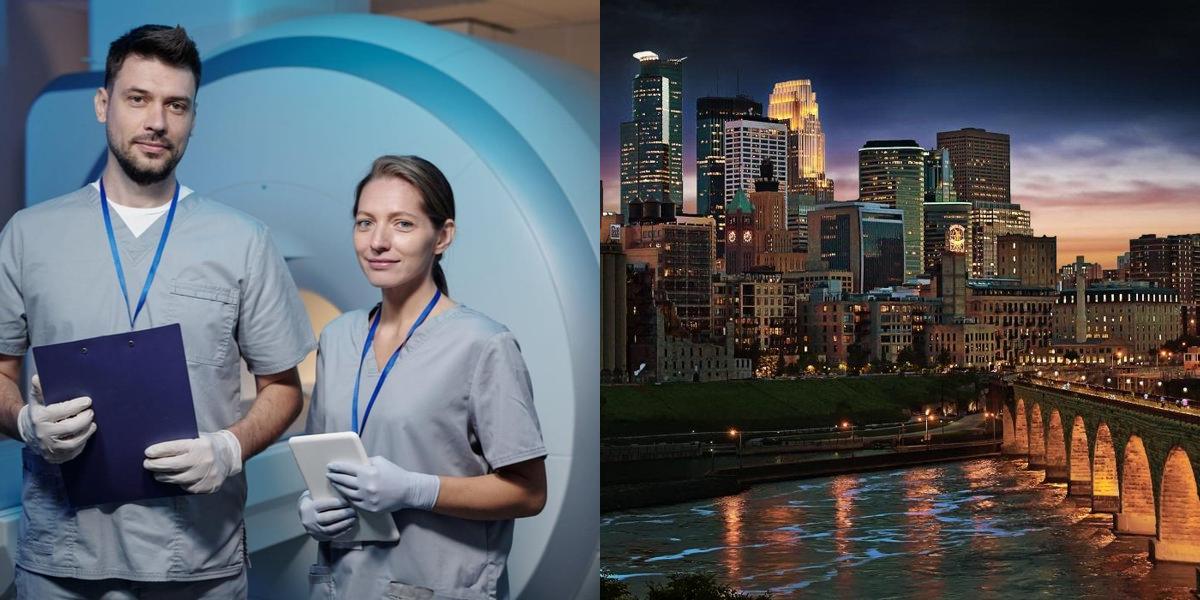How to Become a Radiology Technician in Minnesota (2026)

Radiologic technologists in Minnesota earn an average salary of $83,650 per year ($40.22 per hour), according to the U.S. Bureau of Labor Statistics. Employment for radiologic technologists and technicians is projected to grow 4% from 2024 to 2034, supporting steady demand across hospitals and imaging centers.
If you want a structured, two-year pathway into healthcare with strong pay and hands-on clinical training, here’s exactly how to become a licensed radiology technician in Minnesota.
How Long Does It Take?
Most radiologic technology programs take about 2 years to complete.
Some technologists later pursue certifications in MRI or CT to increase earning potential.
Frequently Asked Questions
Is a license required in Minnesota?
Yes. ARRT certification and Minnesota state licensure are required.
How much does a radiology technician make in Minnesota?
The average salary is $83,650 per year ($40.22 per hour), according to the U.S. Bureau of Labor Statistics.
What degree is required?
Most employers require an Associate degree from a JRCERT-accredited radiologic technology program.
Is radiology a stable career in Minnesota?
Yes. Employment is projected to grow 4% from 2024 to 2034, and imaging services remain essential in healthcare.
Final Thoughts
Becoming a radiology technician in Minnesota offers a structured path into healthcare with strong earning potential. With a two-year accredited program, ARRT certification, and state licensure, you can enter a profession that remains consistently in demand.
If you're ready to begin, compare accredited Minnesota programs and review admission requirements today. Financial aid may be available to those who qualify.
If you're thinking of a new career path, Dreambound offers in-depth guides to understand various job choices:

Athena is Co-founder and CEO of Dreambound.




